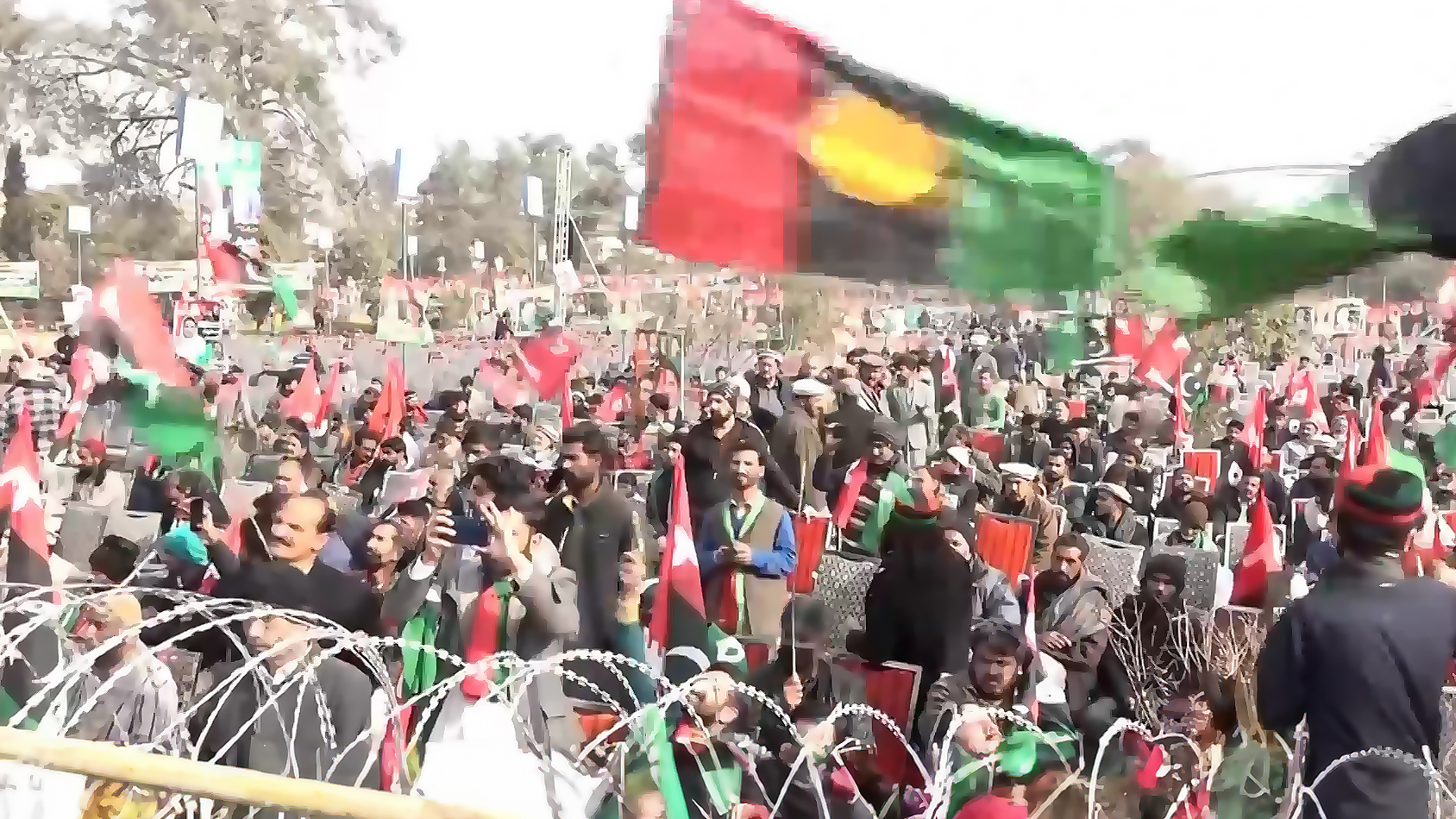play videoplay video
Video duration 02 minutes 19 seconds 02:19
The preliminary results of the general parliamentary elections in Pakistan showed progress for independent candidates who won a third of the seats in parliament, amid efforts by all the winning parties to establish alliances in order to form a government, while the army commander expressed his hope that the elections would bring stability to the country.
The Tehreek-e-Insaf party, led by Imran Khan, claims the victory of most independents, despite his imprisonment and the banning of his party, while the results highlighted that candidates from the Muslim League-Nawaz Party, led by former Prime Minister Nawaz Sharif, achieved second place.
Candidates from the People's Party led by Bilawal Bhutto and Asif Ali Zardari came in third place.
Al Jazeera Net's envoy to Islamabad, Shaher Al-Ahmad, stated that the results of 253 seats out of 266 being contested were announced, and the result of one seat was postponed due to the death of one of the candidates, while the results of 12 seats have not yet been announced.
The independents, most of whom belong to the Tehreek-e-Insaf party, won 100 seats, while the Muslim League-Nawaz Party won 71 seats, while the People's Party won 54 seats.
The results indicate that the winners may be forced to establish alliances to obtain the support of two-thirds of parliamentarians in order to form a government.
The Pakistan Muslim League-Nawaz Party and the Pakistan People's Party agreed to form a coalition government "in the center" and in the "Punjab" region, after the leaders of the two parties, Shehbaz Sharif and Bilawal Bhutto, and former President Asif Ali Zardari met.
Sources reported that Zardari and Shahbaz agreed to form a government in the Punjab region and in the center, and the two parties will present their views in the next meeting and finalize all matters related to the power-sharing formula.
The Tehreek-e-Insaf party led by Imran Khan claims the victory of most independents despite his imprisonment and the banning of his party (French)
The army congratulates
The Free Elections Network, an independent monitoring organization, said that nearly 60 million out of more than 128 million registered voters cast their votes at the ballot boxes, while an official report on the turnout rate has not yet been issued.
This number was published in the initial report of the observer group on the vote, while the official number has not yet been released.
For his part, Major General Syed Asim, Commander of the Pakistani Army, said that the country will be well represented in a unified government of all democratic forces, expressing his hope that the elections will bring stability and “be a harbinger of peace and prosperity.”
Assem congratulated the candidates for what he called successful behavior during the voting process, adding that the people need to get rid of the politics of chaos and polarization.
The Pakistani army chief said, "The nation needs steady hands and a healing touch to move from a policy of chaos and polarization that is not appropriate for a progressive country with a population of 250 million people."
Criticism of international concerns
For its part, the Pakistani Ministry of Foreign Affairs issued a statement criticizing the statements of some countries about the elections.
In its statement, the ministry expressed its astonishment at what it described as the negative tone of some statements that do not take into account the complexity of the electoral process, and do not recognize the free and enthusiastic exercise of the right to vote by tens of millions of Pakistanis, as it put it.
The statement continued, "Pakistan will continue to work to build a vibrant democratic system of government, and every election and peaceful transfer of power brings us closer to this goal. We do so not because of the concerns expressed by others, but because this is the aspiration of our people and the vision of our founding fathers."
The slow counting process exacerbated suspicions of possible manipulation of the results, which is not in the interest of Imran Khan’s party.
The Election Commission spoke of “internet problems” to justify the slow process, and doubts about the credibility of the elections increased due to the authorities cutting off communications and mobile Internet service throughout polling day.
On Friday, the United States, Britain, and European Union countries expressed their concern about the electoral process, and urged an investigation into the reported irregularities.
Last Thursday, Pakistan witnessed elections to select 266 deputies, from among 5,121 candidates, and the selection of 593 deputies in the regional parliaments from among 12,695 candidates.
Source: Al Jazeera + agencies

